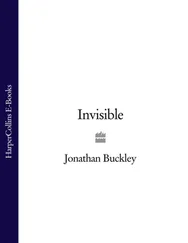‘There’s nothing wrong with him that I can see,’ declared Dr Levine eventually. ‘Do you feel there’s anything wrong with you, Master MacIndoe?’
‘No, sir.’
‘Well, neither do I.’ Dr Levine yawned, removed his glasses and bent his fingers to grind at his eyes with his knuckles.
‘He looked like a big squirrel,’ Alexander told Megan that afternoon, and he copied the way the doctor’s mouth had grimaced and his cheeks puffed out as he rubbed his eyes. ‘Nothing wrong with him,’ he repeated with a superior sniff, twiddling his thumbs pompously on his stomach. ‘Are you a fool, Mrs MacIndoe?’
It was not the first time he had heard Megan laugh, but that is how he was to recall it, with Megan standing on the opposite side of the road from Mrs Beckwith’s house, and stamping her foot as though the shock of her laughter had travelled right through her body. ‘So you’re not ill then?’ she asked.
‘No, I’m not ill.’
‘You’re just odd. That’s all there is to it,’ she said, walking backwards across the street.
‘That’s all there is to it,’ he parroted.
‘Odd Eck,’ said Megan as a goodbye.
‘Odd Eck, odd Eck; odd Eck, odd Eck,’ he repeated for her, to the tune of two chiming bells.
There was a place at the turn of the stairs where the grain of the wood had come through the varnish to form sand-coloured terraces that he would magnify in his imagination to the dimensions of the cliffs and bays that Jimmy Murrell had described. At the foot of the banister that rose from this step he had found a globule of varnish that was not absolutely hard, from which his thumbnail could detach a black sliver that had an aroma that was something like the tobacco that was left in the bowl when his father’s pipe went out. The morning after the visit to Dr Levine, he was sitting at the turn of the stairs, his face against the cool wood of the banister. His mother came up, carrying the laundry basket, and as she sidled past him he asked her: ‘Do you think I’m odd?’ The smile that he saw, immediately before she put her arms around him and kissed him, convinced him that she did.
‘You do, don’t you?’ he called up to her.
‘I don’t at all,’ she said, and she dropped over the banister a handkerchief that fell over his face.
She was as worried after the visit to the doctor as she had been before. He would be sitting on the threshold of the house, watching the traffic or the sky, and she would rush to him and urge him out into the street to play. ‘Come on, Alexander, look lively,’ she would almost shout, clapping her hands to recruit him for some chore about the house. ‘Watching the grass grow?’ she would ask, or ‘Saving shoe leather?’ or ‘Holding the floor down?’ And once, when he was in the garden, he heard her say to his father, ‘Our son’s turning into a tree, Graham.’
One afternoon in April she strode down the hall, lifted him up, and said: ‘What would you say if I said we were going up to town? To see the lights come on.’
‘That’d be nice,’ he replied.
‘Once more, with feeling?’ she requested.
‘That’d be very nice,’ he said, loudly enough to earn an embrace.
They left the house in the dusk, and it was dark when they reached Nelson’s Column. His mother pointed down the wide road that stretched off to Buckingham Palace. ‘Do you want to go down there?’ she asked. She did not seem interested by the idea.
‘Don’t mind,’ he said.
‘Fine. What about down there? Do you want to go and see the Houses of Parliament?’ she asked, and it seemed she would be disappointed if he did.
He looked down Whitehall. The buildings were all the same colour and all the people were walking with their heads down, as if they didn’t want to see anyone. ‘We saw them from the train, didn’t we?’ he replied.
‘Let’s go and see the lights then,’ she proposed.
The lights were in Leicester Square, where the Empire was presenting Easter Parade with Judy Garland and Fred Astaire. For a few minutes they stood in the drizzle, while his mother marvelled at the signs for the shows. ‘Magnificent, isn’t it?’ she said, gesturing at a building on which huge grey shadows floated like the spirits of the dead in the picture of heaven in Nan Burnett’s front room. ‘We’ll take a walk through theatreland,’ said his mother, and bareheaded in the rain they went up Haymarket and down St Martin’s Lane and across Covent Garden, where the pavements smelled of dustbins. Facing the Theatre Royal she took his hand and said to him, as if telling him something he must not tell anyone else: ‘This is a very famous place. A very special place. The Desert Song, Show Boat, Oklahoma! – they were all performed here.’ Under the theatre’s colonnade she sang a whole song for him, and she sang a few lines as they strolled back along the Strand, and on the journey home. But before the train reached Blackheath station she turned away from him and rested her forehead on the dark glass. From what felt like a great distance, Alexander regarded her, wondering what they had done that had made her unhappy.
Within twenty years the walk through theatreland would dwindle to the memory of the rain-slicked cars in Leicester Square and the sign for Easter Parade. The train journey home would vanish, but for the image of the tree of steam that rose from the funnel of a waiting engine, and of the railway lines rushing in like streams between the platforms of London Bridge station. The face of Dr Levine would vanish, as would the conversation on the stairs, and his mother’s conversation with Mrs Beckwith in the garden. All this he would forget, but he would remember acutely and at length the Saturday, in July of that year, on which he followed his mother.
Early on a Saturday afternoon he would sometimes go to Mr Prentice’s shop, for no reason except that it was a pleasant place to be. For as long as ten minutes he would stand behind the potato sacks, where he was not in anybody’s way. Breathing in the bountiful smells of the shop, he watched the brass cylinders flying over the heads of the customers, shuttling along the wires that ran between the counters and the cashier’s turret, where an old woman with a hairnet unscrewed the lids from the cylinders and scooped out the money and the chits, like a cat hooking food from a bowl. To his left were ranged the glazed grey flagons of ginger ale, lemonade and dandelion and burdock, and to the right were the greasy pink hams and wheels of cheese, and the slicing machine with the blade that spun quickly under its shiny steel cowl and made a ringing sound when its edge came out of the meat. Opposite was the door to the back room, where Mr Prentice worked.
Sometimes Mr Prentice would turn round from his desk and call out to him: ‘All in order, MacIndoe?’ To which Alexander’s response, copied from his father, was: ‘Aye aye, Mr P,’ and a soldier’s salute. And in reply Mr Prentice would brush his brow with his forefinger; and then, having hitched up the metal bands that held his shirtsleeves to his upper arms, he would return to his letters and bills. On this particular afternoon, Mr Prentice gave his one-fingered salute, glanced over Alexander’s shoulder and said, pointing: ‘Wasn’t that your mum going past?’
Through the gaps in the whitewash prices on the window Alexander watched his mother hurrying along the pavement. She was wearing her long chequered skirt and her chequered jacket, and the dark blue hat that he had seen on top of her wardrobe but never seen her wear.
Alexander looked at Mr Prentice, but Mr Prentice was leaning forward in his chair and looking out at the street, though there was no longer anyone to see there. ‘Better hurry home,’ he said.
Читать дальше











